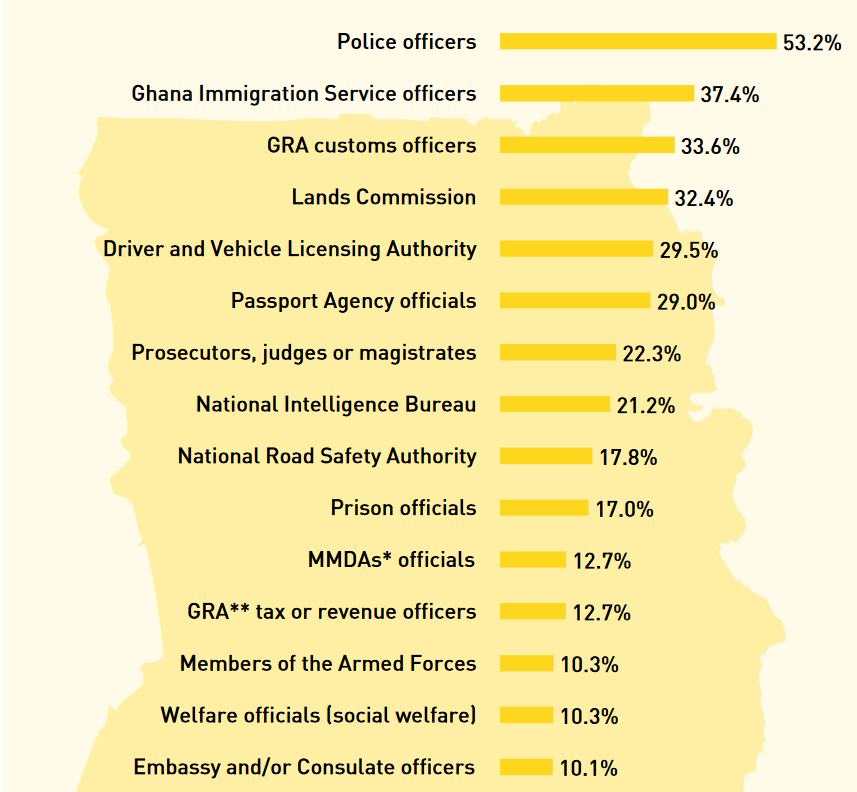Police officers receive most bribes in Ghana – Latest UN report
The Ghana police service has long been identified by many as an institution where bribe taking thrives.

The Ghana police service has long been identified by many as an institution where bribe taking thrives. There have been many instances where police officers have been captured on camera taking bribe from drivers.
Many have alleged that they are made to pay huge sums of monies at the police station before their arrested suspects are released on bail.
There have been other reports capturing the Ghana Police Service as a corrupt institution. A latest report conducted by the United Nations office on drugs and crime (UNODC) in collaboration with the Commission on Human Rights and Administrative Justice (CHRAJ) and the Ghana Statistical Service has revealed the level of corruption in some key institutions of the country.
Findings from the report captured police officers as the most corrupt among public officers in Ghana. They are leading the chart with alarming prevalence rate of 53.2 percent.
Others include the Ghana Immigration Service (GIS) Officers and Ghana Revenue Authority (GRA) customs officers who have also ranked high on the chart with bribery rates of 37.4 percent and 33.6 percent, respectively.
Elected government officials were also captured in the report with prevalence rate of 2.9 percent bribery involvement.
Bribes paid to public officials come in different forms. Almost 9 out of 10 of those paid in Ghana are in the form of cash (84.8 per cent). Food and drink and the exchange of a public service for another service are far less common, although in the country’s rural areas (17.8 per cent) more bribes are paid in the form of food and drink than in its urban areas (10.1 per cent).
Total cash bribes paid in Ghana are the equivalent of almost one third of the 2021 budget of the Ministry of Education.
Cash bribes are 1.5 times larger in urban than in rural areas of the country, with the national average bribe amounting to Ghanaian cedi 348. Given that roughly 17.4 million bribes were paid in Ghana in 2021, a total of roughly Ghanaian cedi 5 billion is paid in cash bribes to public officials on a yearly basis in Ghana, or the equivalent of 32.9 per cent of the 2021 budget of the Ministry of Education.



